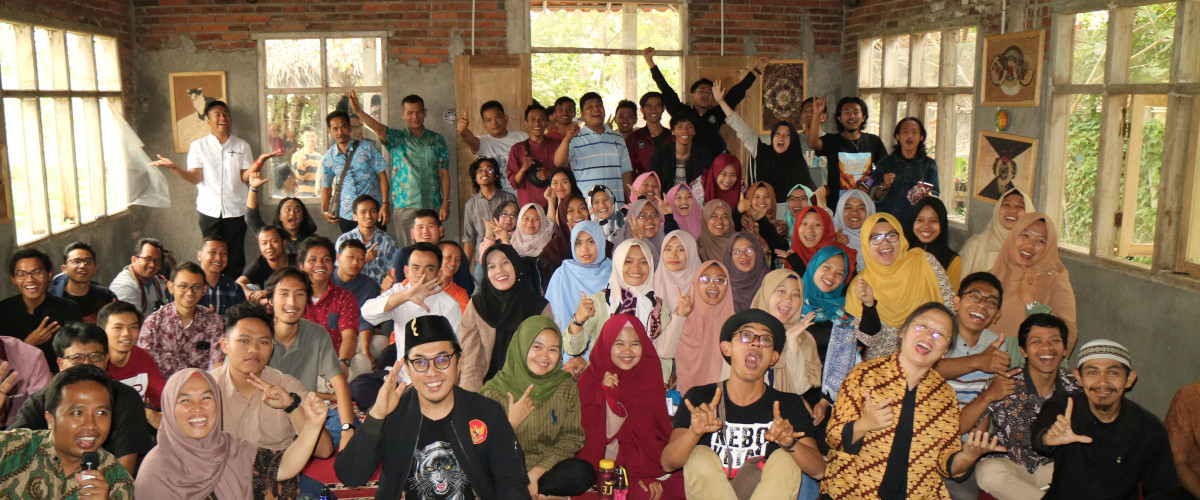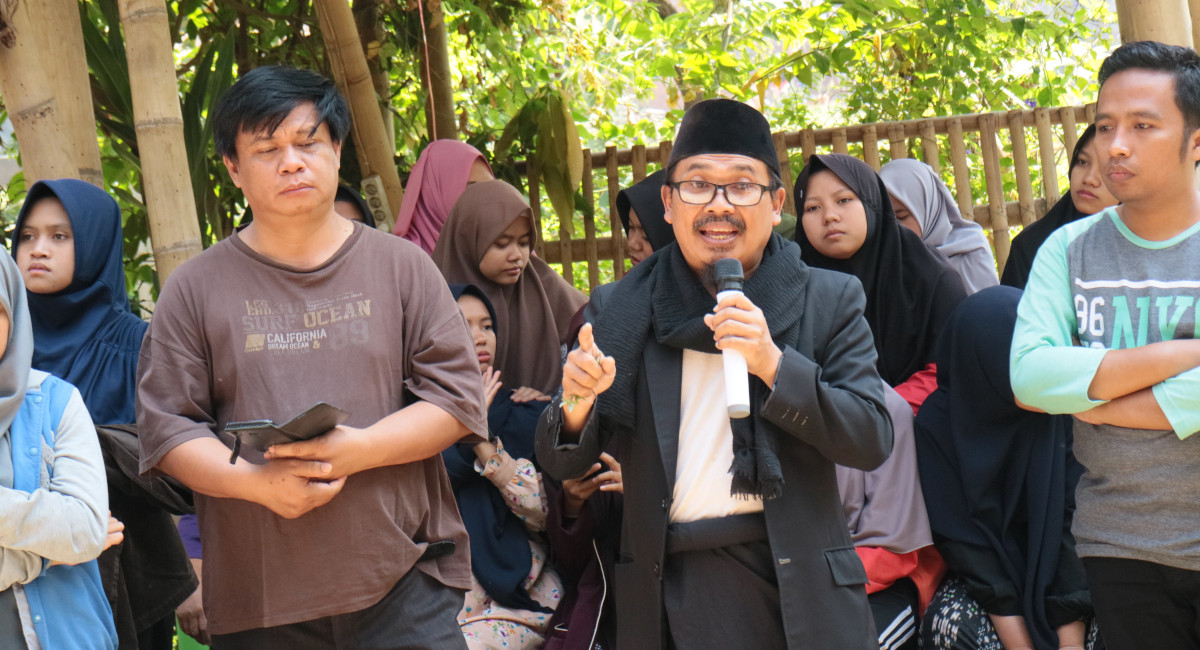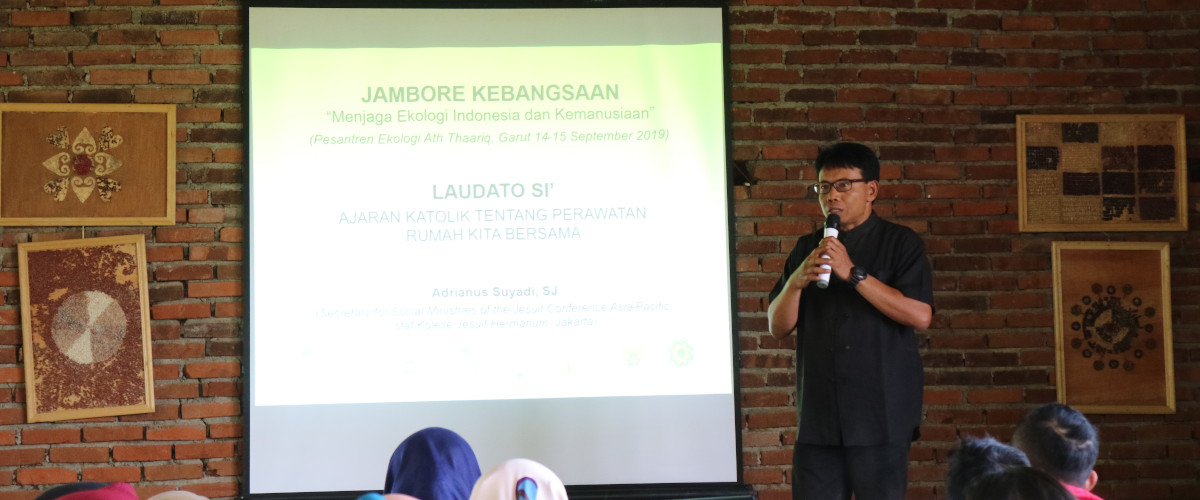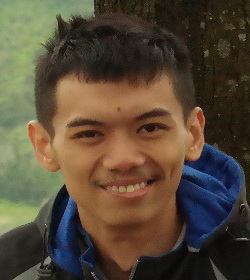
Themed “Sustaining Indonesia’s ecology and humanity”, the event took place on September 14 and 15 at the ecology pesantren of Ath-Thaariq in Garut, West Java, Indonesia. Fr Adrianus Suyadi SJ, Br Stevanus Prihana SJ and nine Jesuit Scholastics from Hermanum College, the Jesuit philosophy school in Jakarta, were among the 110 participants.
The pesantren of Ath-Thaariq is led by Abbi Ibang Lukmanurdin and his wife Ummi Nissa Wargadipura. The couple established the pesantren (Islamic boarding house) 10 years ago to help address the food crisis. According to Abbi and Ummi, most of our food is inorganic and grown using chemical fertilisers and pesticides. Nowadays, food production and consumption benefit more corporations than farmers. The massive use of fabricated seeds, chemical fertilisers and pesticides has marginalised traditional farmers and destroyed the environment.
“Capitalised food production and consumption have caused our farmers to depend on genetically modified seeds, chemical pesticides and fertilisers. Consequently, agricultural production costs are higher than product sales. This is why many farmers have left farming and instead have become construction workers,” explained Ummi Nissa.
The Green Revolution has impacted farmers in West Java. It made people dependent on rice as a staple food instead of consuming local staple foods such as cassava, sweet potatoes, sorghum, corn, sago and the like. Many consider consuming local staple food as identical with poverty.
Another impact of the Green Revolution is the massive use of chemical fertilisers, pesticides and genetically modified seeds in order to meet the demand for quantity. For Abbi and Ummi, this type of farming is unsustainable.
“Our farmers are trapped in a cycle of capitalism in food production, distribution and consumption. They inevitably have to buy the fabricated chemical fertilisers, pesticides and modified seeds. Using massive chemical fertilisers in agricultural production will destroy the soil and the environment,” said Abbi Ibang.
The pesantren’s vision is to promote food sovereignty through organic and eco-friendly farming. The pesantren dedicates about 800 square metres of land for the farming activities of its santri (Muslim seminarians). They cultivate organic paddy and occasionally vary it with other sources of carbohydrates like cassava, sweet potatoes and other local foods and vegetables. They meet their daily food consumption from their land, which produces enough food to feed 30 people.
Besides promoting eco-friendly farming, the pesantren also values diversity. Although the interreligious jamboree was dominated by Muslim participants, Jesuit scholastics were invited to lead the opening and closing prayers. The Catholics were also allowed to celebrate the Eucharist in the pesantren’s rooms, which is an uncommon practice in Indonesia. In public events, the prayer is usually led by Muslims while the other believers are invited to pray individually.
Abbi Ibang explained that Islam teaches that diversity of creatures must be recognised and respected. God creates diversity and all creatures are called to live in harmonious relationship united by love (charity).
In one session, Abbi Ibang and Fr Suyadi spoke about ecology from a Muslim and Catholic perspective, respectively. Abbi Ibang said that religion and nature cannot be separated from each other because faith can help save and care for nature.
Fr Suyadi shared the commitment of the Catholic Church to the environment, as taught by Pope Francis’ encyclical Laudato si’. Referencing Genesis 1:1-31, Fr Suyadi said that humans are created in the image of God and are mandated to govern and care for all creatures. The relationship between nature, humans and God is a harmonious unity based on love that cannot be separated by anyone. Therefore, humans are called to care for that unity. However, certain social and environmental changes have led to the destruction of this harmonious relationship. To restore it requires social and ecological conversion.
Many participants were fascinated by how similar the teachings of the two religions are on ecology. In the end, they unanimously declared their commitment to care for our common home and to work toward rebuilding a harmonious relationship between people and nature to bring back a healthy ecological balance.
With reports from Fr Adrianus Suyadi SJ









